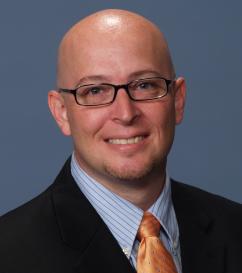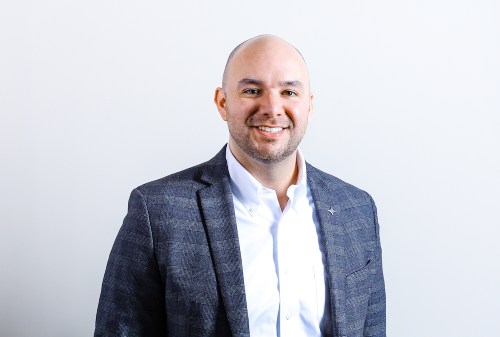Innovation coordinator looks at industry trends for classroom tech ideas

As the innovation coordinator for a large school district in western St. Louis County, Missouri, Bill Bass studies how teachers can integrate technology into their classrooms.
The technology specialist, who is also on the board of directors of ISTE, which is hosting an upcoming edtech trade show, is a former middle and high school English teacher and an adjunct professor of educational technology in St. Louis.
He took on the newly created role of “innovation coordinator: instructional technology, information and library media” in June 2013, and works for a district that serves about 20,000 students, faculty and staff.
Bass took some time to do a Q&A with EdScoop, and share his insights about what works and what can be improved.
EdScoop: What are your district’s top technology priorities this year?
Bill Bass: We are looking heavily at digital content and the role that it plays in schools. Like many districts, we are trying to figure out how to best use our funds in order to reach our students and provide them with what they need both in and out of school. As we think about how to provide that content, we also need to think about how to provide professional development for teachers so the technology is used in meaningful ways. We’ve made it a priority to think about equity of access to both the internet and devices, but also equity of experience for students so it’s not a matter of which teacher they got that determines their opportunities to use technology, but it’s used in all classrooms across the district.
ES: How did you come into your role?
BB: A few years ago my district reorganized their curriculum department to make it more interdisciplinary and, in the process, created the role of innovation coordinator. Ultimately I am responsible for technology integration as well as the library program. As a former English teacher and technology integrator, this appeals to me because I can help connect the dots between curriculum and technology and make both accessible for each group. The idea came from looking at industry trends and recognizing that we needed someone to continually look ahead and try to figure out what we need to be thinking about in the future. My past experiences have allowed me to connect with a great many people from across the country, which helps me stay informed and current.
ES: What is the most exciting or interesting project your district is currently working on? When is it scheduled to roll out?
BB: When it comes to technology, the most interesting project that we are currently working on is that of a modified 1:1 Chromebook model for our elementary schools. To be honest, while the project is big and it will be a great thing for our students, what’s more interesting is what it has the potential to do to our entire system of schools. Providing Chromebooks and updating our wireless infrastructure is eliminating a great many of the barriers that have been a part of regular classroom life for many years.
ES: How is the role of a school technology specialist or leader changing?
BB: It’s more important than ever that the technology leader in schools be flexible and open to change. One of the things that we regularly talk about in our district is that we have to make technology decisions based on the needs of curriculum. We do our best to make sure that technology gets out of the way and isn’t the focus. That’s a dramatic change from where we were five short years ago. To be an effective technology leader, it’s important to have the tech background and understanding, but it’s equally important to understand who the clients are and understand that we are all here to serve students. Those leaders who aren’t of that mindset are doing a disservice to the students and teachers they serve.
ES: What do you think the job will look like in 10 years?
BB: Ten years from now I think that even more of the technology that we deal with will be automated and take less maintenance, but our reliance will be higher than ever. Even now, if the tech goes down, much of the district comes to a halt. This will become more pronounced in the future. However, one of the pieces that I think will continue to be crucial is that of a visionary leader who is looking ahead and preparing for what’s next. In that aspect, the tech will be different, but the approach will have to be similar.
Reach the reporter at corinne.lestch@edscoop.com and follow her on Twitter @clestch and @edscoop_news.




